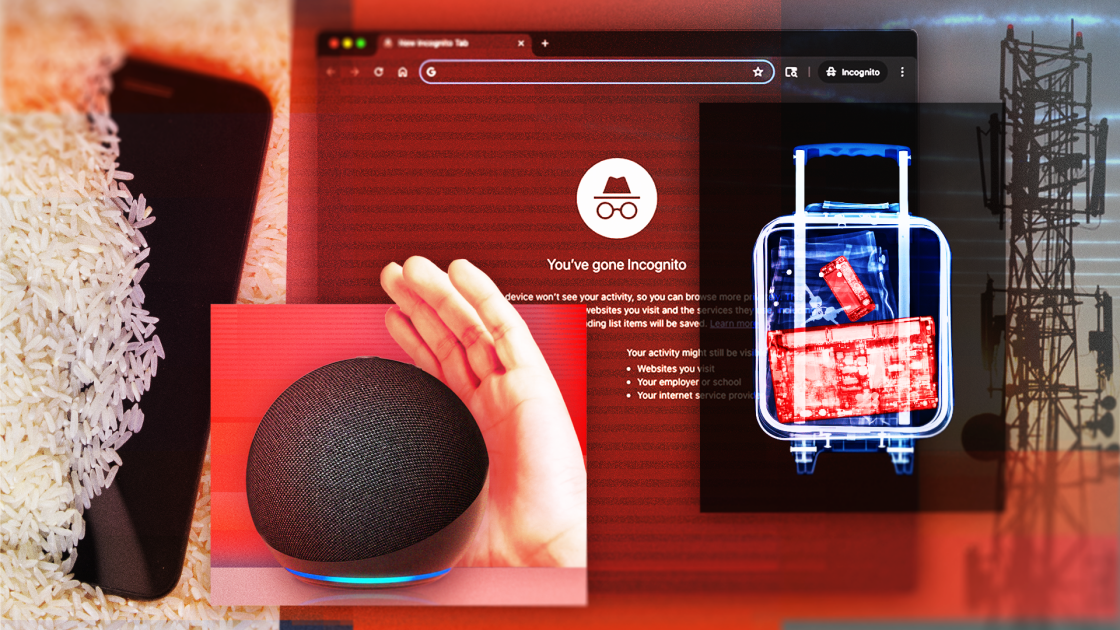Trust This Tech: The…

Few things are more gut-wrenching than discovering that the computer or mobile device that you rely on isn’t performing the way you need it to, or maybe isn’t working at all.
When it comes to tech, rock-solid reliability is key, be it for play or work. “Frying your system before the big raid night is a bummer,” says PCMag’s deputy managing editor for hardware reviews, Joe Osborne, “but one or more office workstations going kaput could lead to substantial financial loss.”
Users need to handle tech with care, of course. “Much of a desktop or laptop’s reliability depends on how it’s being used,” Osborne says. But the ultimate responsibility lies with the manufacturer. Your best bet to ensure everything works smoothly when you purchase new PCs, phones, or tablets is to buy from brands that you know you can rely upon.
That’s why when we run Readers’ Choice hardware surveys thoughout the year, we always ask you to would rate your PC, phone, or tablet maker on reliability. Here, we crunch that data to determine the most (and least) reliable manufacturers. Read on to see which companies our tech-savvy readership recommends.
The Best PC, Tablet, and Phone Brands for Reliability
Laptops: LG Is the Top Name in Reliability
While we’ve collected reliability scores on laptop brands for several years in our annual Readers’ Choice survey, last year marked the first time we conducted a comprehensive reliability analysis, similar to the one you’re reading now. In 2025, we’re looking at 10 laptop vendors, up from last year’s eight, as our readers rated a larger number of manufacturers this year.
Apple, the previous winner, saw a slight decrease in its score, but it still has an excellent rating of 9.3 out of 10. However, LG‘s entrance onto our list changes everything, as the brand scores a remarkable 9.6. That’s even higher than Apple earned last year (9.5), and more than enough to earn LG’s laptops—like the Gram line—the win for reliability in 2025. (LG was also our Readers’ Choice for laptops earlier this year.)
“You might know them better for their TVs or appliances, but LG’s laptops are excellent,” says PCMag principal writer Brian Westover. “They’re strong and light, and that translates into long-lasting durability. Whether it’s the convertible LG Gram Pro 2-in-1 16 or the big-screened ultraportable LG Gram 17, we’ve been seriously impressed by LG’s laptop lineup this year.”
MSI comes in third place, behind Apple, while Microsoft jumps from seventh to fourth. Last year, every brand’s reliability rating was higher than 8.5. This time around, new entrant Samsung scores the lowest, at 7.7. It’s not a terrible number, but one to consider if the durability and dependability of your laptop are a top priority.
For more, read Readers’ Choice 2025: Your Favorite Laptop Brands.
Work Laptops: Count on Apple and Dell
For the second consecutive year, Apple is the top choice for reliable laptops for work, as determined by end-users in the workplace. This is despite a tiny dip in score, from 9.4 to 9.3.
“Apple has long lived up to its reliable reputation by controlling more of its system assembly than any manufacturer, especially since it moved to in-house processors exclusively,” PCMag’s Osborne says.
On the Windows side, your best bet for work in terms of reliability is MSI. While known for gaming, plenty of people apparently use its laptops at the office. Among users, it scores above bigger names like (in order of rank) Lenovo, HP, Asus, and Acer. Dell comes in last place.
However, among IT managers, Dell ties with Lenovo for reliability. The win goes to Dell, as it has the higher overall satisfaction rating in our original survey for laptops used at work. Last year’s winner, HP, drops to third.
”Dell is the way to go for most fleets because of lower costs, more specialized systems in every category, and a higher repair score than its competitors in this year’s Business Choice survey,” Osborne says.
For more, read Business Choice 2025: Your Favorite Laptop Brands for Work.
Desktops: Apple Stays Strong
It doesn’t matter what kind of Apple desktop you get—the company has an absolutely stellar reliability rating, more than enough to keep it on top again for 2025. Lenovo captures second place for desktop reliability this year, replacing Dell, which falls to fifth place.
As we always note, when it comes to desktops, the PCMag audience is heavily into building their own. As was the case last year, DIYers rate their custom systems higher for reliability than any Windows brand in the chart. However, this time around, people who bought their PC from a local custom vendor—the kind of mom-and-pop tech shops that thankfully still exist—rate their systems lower for reliability.
“Desktops may not be as popular as laptops, but they’re still big among serious gamers, professionals who need power, and they’re growing fast as interest in AI ramps up,” Westover says. “If you want a Windows or a Linux machine, the major vendors do a good job, but building your own will always give you something that’s more tailored to your needs and your budget.”
“But for pure reliability and out-of-the-box usability, Apple wins hands down,” he continues. “The company’s tight integration of hardware and software makes Macs some of the best systems out there, whether you want an iMac or are deciding between the Mac mini or a Mac Studio.”
The iMac is also the standout desktop for reliability when we narrow down the results to all-in-one (AiO) PCs—the kind of desktop that appears to be nothing but a monitor with some input devices. Apple bests the big three PC vendors: Dell, HP, and Lenovo.
One area of desktop computing where Apple doesn’t compete as much is gaming. You might expect a pure-play gaming PC company to take the reliability crown, but this year’s award goes to Lenovo, the company behind the Legion line of gaming towers.
Alienware, HP, and self-built systems also score well here, all with numbers above 9.0.
For more, read Readers’ Choice 2025: The Desktop PC Brands You Like Best and How to Build a PC: The Ultimate Beginner’s Guide.

Get Our Best Stories!
Your Daily Dose of Our Top Tech News

By clicking Sign Me Up, you confirm you are 16+ and agree to our Terms of Use and Privacy Policy.
Thanks for signing up!
Your subscription has been confirmed. Keep an eye on your inbox!
Work Desktops: Dell Comes Out on Top
The aforementioned big three computer sellers in the US—Dell, HP, and Lenovo—all have exactly the same score for reliability for desktops for work (as rated by users in an office setting). It’s a big indicator that the workstations provided by your employers are all pretty trustworthy.
However, it’s easy to narrow things down to a clear winner, thanks to the other scores in the original Business Choice for laptops results. Based on those numbers—such as high overall satisfaction with the brand—the award goes to Dell.
When it comes to the brand of work desktops that IT managers, as opposed to workplace users, find most reliable, Lenovo takes the award for the second year in a row. Lenovo’s score drops by half a point, but Dell and HP also see decreases.
“It’s a very tight race between the usual big names in this space; they all have expertise in putting out reliable fleet systems,” says Matthew Buzzi, PCMag’s principal writer for hardware. “You’ll be happy with any of these desktops from the three major manufacturers, but on overall, IT managers are finding Lenovo’s products to be more reliable. It’s nice to pick a brand that has even a slight edge when it comes to reducing downtime.”
For more, read Business Choice 2025: The Desktop PC Brands Driving Workplace Performance.
Phones: If You Must Drop a Smartphone, Make It a Google Pixel
Last year, Apple, Google, and Samsung all tied on reliability, but we awarded Samsung the top spot based on its higher ratings from our previous Readers’ Choice mobile phone survey. This year, the winner is clear. The top choice is Google, with a reliability score of 9.3. The Pixel maker isn’t alone with excellent scores for reliability—OnePlus nabs second place with a 9.1, and Apple, at 9.0, is in third. Samsung falls to fourth, but still has a more than respectable 8.9 reliability rating. As it did last year, Motorola places last, with an 8.5.
“While it is heart-stopping to drop your phone onto the merciless Earth, the three top phone manufacturers are making their handsets tougher than ever before,” says Iyaz Akhtar, PCMag’s mobile reviewer. “The Google Pixel 10 line, from the least to most expensive, features the same strong break-resistant glass and an IP68 rating, which means they’re safe from water.”
Recommended by Our Editors
Naturally, if you’re already deep into using Apple products, you’re probably going with an iPhone no matter the reliability score. Still, with a 9.0, you don’t have to worry about much.
For more, read Readers’ Choice 2025: Your Favorite Mobile Carriers, Phone, and Tablet Brands.
Work Phones: Another Win for Google
When it comes to using a smartphone on the job, readers also feel that the most reliable brand is Google. Pixel phones’ reliability at the office is ranked almost as high as it is for personal use.
Apple’s iPhones are in second place with an excellent score of 9.0, and Samsung barely trails it. If you use a phone for work, all of the above options are likely to keep you satisfied. Motorola, which is almost a full point behind the rest, doesn’t fare as well here.
For more, read Business Choice 2025: The Top Mobile Carriers, Phone, and Tablet Brands for Work.
Tablets: Reliability Remains the Apple Hallmark
Apple’s reliability ratings on iPads remain second to none.
“The Apple iPad is synonymous with tablets. People tend to call any slate an iPad,” Akhtar says. “Apple offers many versions, and all are extremely well-built with a tremendous amount of care. Like the iPhone, Apple quickly releases iPadOS updates to keep iPads running smoothly.”
The competition this year is a little different. Samsung came in second last year, but falls to third this time, behind Google, which is new to this list. If you’re looking for a non-iPadOS tablet, consider Google. The brand only re-entered the tablet market a couple of years ago, starting with an affordable 10-inch model with full Android. According to our readers, it’s built to last.
Microsoft, Amazon, and Lenovo tablets are among the bottom three, with the latter two receiving scores similar to last year’s.
For more, read Readers’ Choice 2025: Your Favorite Mobile Carriers, Phone, and Tablet Brands.
Work Tablets: Apple Narrowly Outranks Samsung
Not many tablets get rated for work reliability, but the two biggest US tablet sellers make a showing. Apple and Samsung are as close as can be, with excellent ratings of 9.3 and 9.2, respectively. But Apple has the overall win.
Akhtar praises the Samsung Galaxy Tab line for reliability: “Samsung makes excellent Android tablets with great attention to detail. The company’s flagship Galaxy Tab S11 series is IP68-rated to withstand dust and water.”
Obviously, there’s more to the feeling of reliability than an IP (Ingress Protection) rating can convey, as Apple’s tablets lack IP ratings. Nevertheless, our readers clearly feel that an iPad is the right choice for a reliable slate computer in the workplace.
For more, read Business Choice 2025: The Top Mobile Carriers, Phone, and Tablet Brands for Work.
About Our Expert

Eric Griffith
Senior Editor, Features
Experience
I’ve been writing about computers, the internet, and technology professionally since 1992, more than half of that time with PCMag. I arrived at the end of the print era of PC Magazine as a senior writer. I served for a time as managing editor of business coverage before settling back into the features team for the last decade and a half. I write features on all tech topics, plus I handle several special projects, including the Readers’ Choice and Business Choice surveys and yearly coverage of the Best ISPs and Best Gaming ISPs, Best Products of the Year, and Best Brands (plus the Best Brands for Tech Support, Longevity, and Reliability).
I started in tech publishing right out of college, writing and editing stories about hardware and development tools. I migrated to software and hardware coverage for families, and I spent several years exclusively writing about the then-burgeoning technology called Wi-Fi. I was on the founding staff of several magazines, including Windows Sources, FamilyPC, and Access Internet Magazine. All of which are now defunct, and it’s not my fault. I have freelanced for publications as diverse as Sony Style, Playboy.com, and Flux. I got my degree at Ithaca College in, of all things, television/radio. But I minored in writing so I’d have a future.
In my long-lost free time, I wrote some novels, a couple of which are not just on my hard drive: BETA TEST (“an unusually lighthearted apocalyptic tale,” according to Publishers’ Weekly) and a YA book called KALI: THE GHOSTING OF SEPULCHER BAY. Go get them on Kindle.
I work from my home in Ithaca, NY, and did it long before pandemics made it cool.
Read Full Bio



